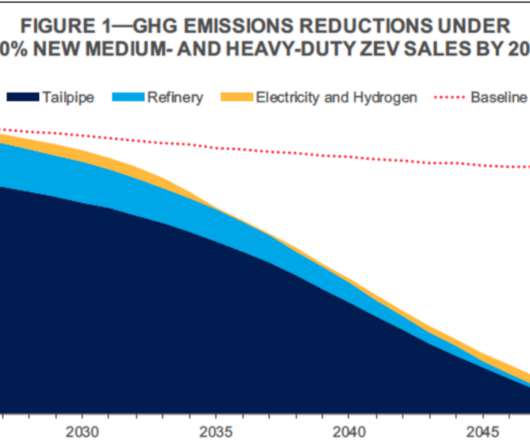GFEI report suggests $2T savings from fuel economy improvements in ICE vehicles through 2025 can help fund long-term transition to plug-ins
Green Car Congress
NOVEMBER 8, 2013
The GFEI, a partnership of international agencies and top energy policy experts, suggests that these cost savings could in part be used to help offset the costs of developing a global market for electric vehicles over this time frame, since the savings are estimated to be at least four times bigger than these costs.















Let's personalize your content